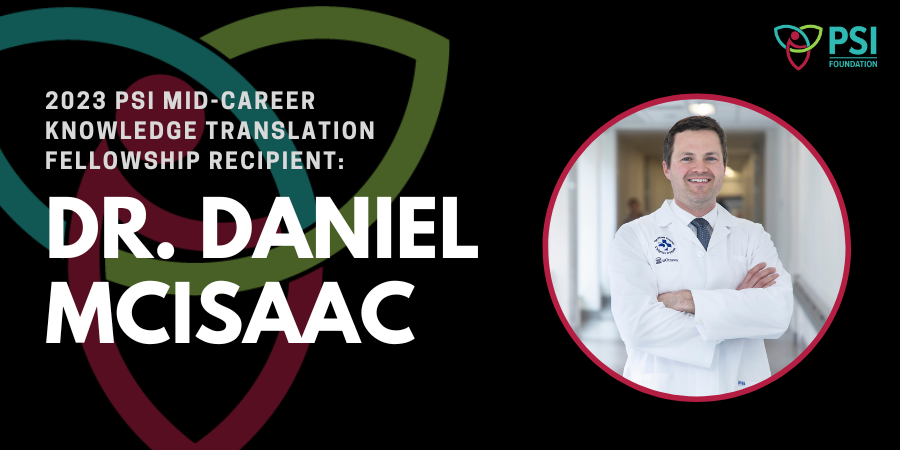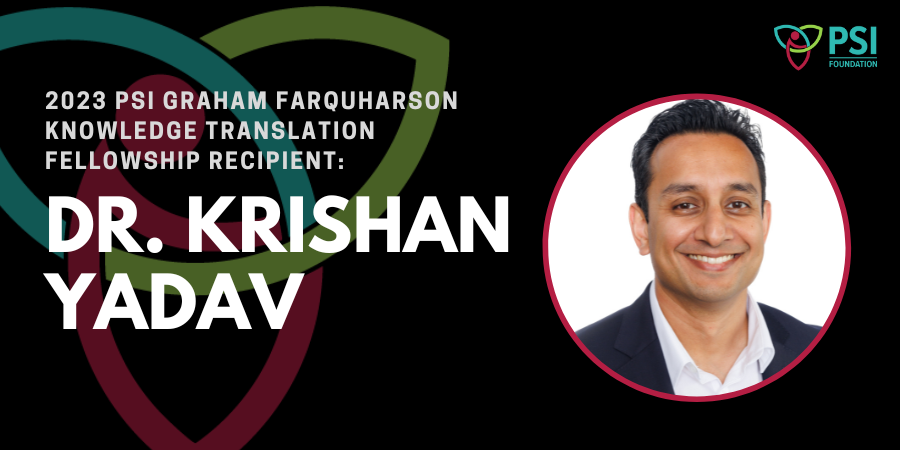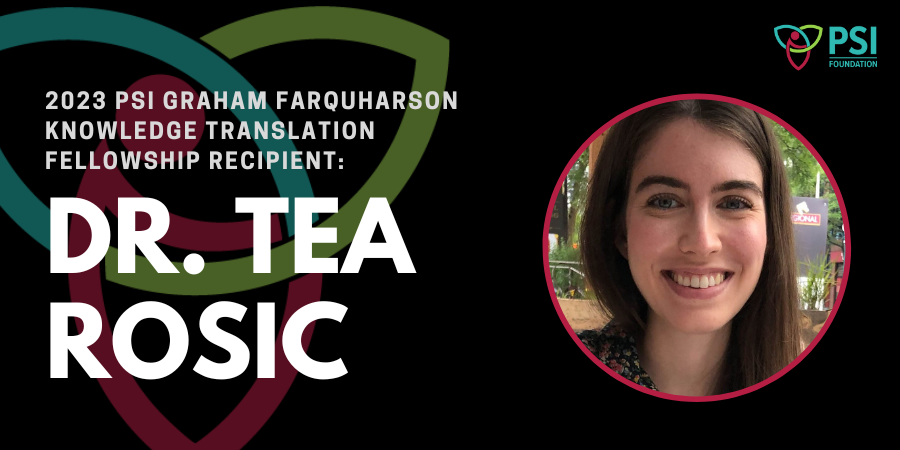“As an anesthesiologist, I care for hundreds of patients preparing for, having, and recovering from surgery each year. While most benefit from their operation, many experience complications and struggle to recover their strength and function after surgery. Prehabilitation is an approach where we use the wait time before surgery to a patient’s advantage. We support them in completing evidence-based exercises, help to improve their nutrition and manage the stress of preparing for a major operation. The idea is that because they go to the operating room in better health, they are less likely to experience a complication and will have better recovery after surgery. With the support of the PSI Mid-Career Knowledge Translation Fellowship, I will be able to work with my team, our patient partners, and collaborators to understand the most effective approaches to prehabilitation, and how to implement prehabilitation into routine care to the benefit of the hundreds of thousands of Ontarians who need surgery each year.” – Dr. Daniel McIsaac
PSI Foundation is pleased to announce Dr. Daniel McIsaac as the recipient of the 2023 PSI Mid-Career Knowledge Translation Fellowship.
About Dr. Daniel McIsaac
Dr. Daniel McIsaac is an Associate Professor and Anesthesiologist in the Department of Anesthesiology and Pain Medicine at the University of Ottawa. He is also a Scientist at the Clinical Epidemiology Program of Ottawa Hospital Research Institute, and an Adjunct Scientist at the Institute for Clinical Evaluative Sciences (ICES). To date, Dr. McIsaac has published more than 160 peer-reviewed papers and secured over $10 million in peer-reviewed research funding. He currently holds six Canadian Institutes of Health Research (CIHR) grants as principal applicant, four of which focus on prehabilitation.
Dr. Daniel McIsaac’s Research Program
More than 300,000 Ontarians have major surgery each year. These patients, their physicians, and health system leaders have made it clear that they desire access to effective prehabilitation so that Ontarians who need surgery can improve their health before their operation to avoid complications and enhance recovery after surgery. Dr. McIsaac’s research aims to implement routine prehabilitation, an approach that supports and motivates patients in exercising and improving their nutrition in preparation for surgery, in Ontario’s healthcare system. Working with his team, patient partners, and collaborators, Dr. McIsaac’s program focuses on developing practical and effective prehabilitation programs and evaluating them in real-world settings. His overarching objective is to translate the findings of these real-world experiments into routine care to the benefit of surgical patients in Ontario.
About the PSI Mid-Career Knowledge Translation Fellowship
The PSI Mid-Career Knowledge Translation Fellowship is intended to provide salary support for a mid-career clinician investigator in Ontario, who has demonstrated the ability to successfully complete high impact knowledge translation research. The total amount of the award is $400,000 over two or three years, with the sponsoring institution providing matching funding, contributing to 50% of the total award.
PSI acknowledges that mid-career can be a challenging time for physician researchers. During this phase, there are often additional academic roles and responsibilities including committee work, leadership positions, and mentoring of junior investigators, while clinical work continues. PSI recognizes the importance in supporting this phase of an investigator’s trajectory.
Fellowship Funds to be Used for Translating Prehabilitation Evidence into Practice to Improve Surgical Recovery in Ontario
In Ontario, more than 300,000 people have major surgery each year, such as joint replacement, heart bypass, or cancer operations. While more than 98 of every 100 patients survive their operation, recovery after surgery can be very difficult. This is because major complications such as bleeding, infections, heart attacks, weakness and/or loss of one’s ability to complete day-to-day activities happen to about 1 in 5 people who have surgery.
Prehabilitation means doing exercise, improving diet, and receiving structured motivational care before surgery to improve a person’s recovery after surgery. Patients in Ontario and across the world are keen to have access to prehabilitation, as it makes sense that this approach would lead to better recovery after surgery.
Unfortunately, the science supporting prehabilitation’s impact is still at an early stage. For Ontarians to benefit from prehabilitation, patients, clinicians, and scientists must work in partnership to understand what types of prehabilitation work best, test strategies to deliver prehabilitation across the province, and develop plans to move prehabilitation into day-to-day care for all Ontario surgical patients. Dr. McIsaac proposes to lead such work, building on partnerships and expertise already in place to deliver effective prehabilitation to Ontarians.



